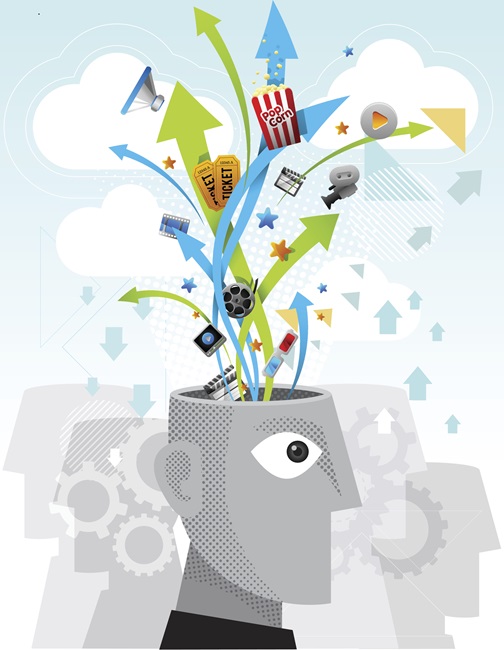Dec 25, 2025
Dec 25, 2025
by Sujata C
"Popcorn brain" is a term used to describe the cognitive effects of excessive digital stimulation from modern technology, likened to the rapid popping of popcorn. As individuals increasingly engage with smartphones, social media, and other digital platforms, their brains become conditioned to expect constant stimulation and instant gratification. We feel scattered and exhausted and unable to continue. As a result, we experience shortened attention spans, difficulty focusing on single tasks, and a decreased ability to engage in deep, reflective thinking. Research says that when you're in deep thought, you may thoroughly analyze an issue or problem, but you're not judging yourself. You're focusing on neutral observable facts.

With the advent of cell phones, we surrendered part of our memory to technology, because there was no need to remember phone numbers as the phone was retaining all the data. Smart phones proved to be worse, as they impact memory negatively and give you digital amnesia. This means our brain loses its ability to hold information and form new memories.
Researchers suggest that the brain's neural pathways are being rewired due to the continuous bombardment of digital stimuli, leading to a preference for quick, fragmented information over prolonged, concentrated effort.
Why is Popcorn brain making news? Psychologists are flagging this fast-multiplying phenomenon as it impacts
Mitigating its effects involves mindful use of technology, taking regular breaks from screens and engaging in activities that promote sustained attention and cognitive engagement.
Cognitive engagement involves activities that challenge the brain, requiring focus, critical thinking and problem-solving. Here are some examples: Read books, play brain games, solve puzzles, learn something new, do math, try your hand at art and craft, play a musical instrument, dance, do yoga or martial arts. These activities will stimulate various parts of the brain and keeps the cells ticking.
Image (c) istock.com
20-Jul-2024
More by : Sujata C